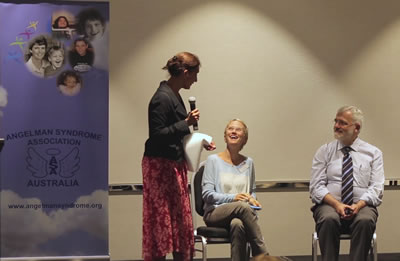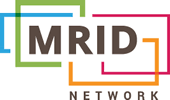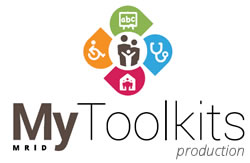 Typically staged over one or two days, seminars and conferences create an invaluable opportunity for consumers, carers and professionals to pool their expertise and experience. Through a range of activities in various formats, there are multiple opportunities for mutual learning and development.
Typically staged over one or two days, seminars and conferences create an invaluable opportunity for consumers, carers and professionals to pool their expertise and experience. Through a range of activities in various formats, there are multiple opportunities for mutual learning and development.
Consumers or carers gain considerably from access to a range of experts, from professionals to other consumers alike. Health professionals gain equally from the opportunity to learn from a wide and diverse group of carers and consumers at once. Further, seminars and conferences create opportunities for exploring consumers’ changing needs and for shaping new strategies for improving service and support structures.
Seminars and conferences create a platform for using a number of Co-Design tools in sequence so that each builds and develops on the next. These may include:
- Educational presentations
- Focus groups
- Forums
- Social activities
- Survey questionnaires
All activities are planned around the topics of prime interest to consumers and carers, to ensure maximum engagement and participation. The overarching collective aim is emphasized throughout- to improve the health, wellbeing and quality of life for individuals with complex health needs and their families.
Conferences should be followed by a comprehensive review involving consumers, carers and professionals (perhaps the conference planning committee or similar). This team will consider the key findings gleaned about directions for improving care and support systems. Key themes will have emerged out of different sessions and some of these will have been explored further with priorities established. Informal comments, casual conversations and personal observations are also critical to consider.
Organising and coordinating seminars and conferences can be a challenge. Many people can be brought together from all over the country – which can be a powerful tool for change. However, coordinating this process can be complicated and time consuming.
Planning a Successful Seminar or Conference
Seminars and conferences require careful planning and coordination.
- Make it as easy as possible for consumers, carers and families to attend. Consider access to transport, parking, accommodation, wheelchair accessibility and catering.
- Gather input from consumers or carers in advance about issues they would like to see addressed, and which formats and tools for discussion are preferred.
- Plan a range of sessions that provide a balance of formats and opportunities for active engagement, both formal and informal, information-oriented and social.
- Schedule activities so that they complement each other (e.g. coupling a panel discussion with a Q&A session).
- To ensure that parents and carers can participate in conference sessions without distraction, consider offering care for the individual with complex needs and siblings (e.g. by organising a group outing in partnership with a trusted service provider).
- Families may also make their own arrangements for respite care. To allow for this to occur, provide as much notice as possible regarding conference dates and location.
- Offer every opportunity for consumers or carers to involve members of their extended families.
- All events and activities should involve professionals, consumers or carers participating alongside each other as equals.
- Educational sessions should reflect the mutual respect between professionals, consumers and carers – ideally with speakers from both groups.
- Provide a questionnaire at the end of the conference to evaluate which sessions and activities were most helpful and solicit any other feedback.
Planning in Partnership
As in all Co-Design processes, the planning of seminars and conferences should involve carers, consumers and professionals working in partnership to achieve the desired outcome.
The size and nature of the consumer group (for example, whether an active and organised consumer support group has been formed) and the intended scale of the conference may determine who takes primary responsibility for organisation. In most cases, a planning committee is formed comprising a mix of consumers, carers and professionals. Different members of the committee may take responsibility for different aspects of organisation.
Consumer Engagement
Attending a conference or seminar can be a daunting prospect for a family living with a complex health condition, due to complexities in travel, accommodation and cost. Every effort should be made to remove barriers to participation. This may mean working with individual families to facilitate their attendance.
It is important that carers and consumers are involved in promoting the event and encouraging others to attend. Information for potential delegates (via email, websites or newsletters) should come from consumers or carers. Organising a large-scale event will only be possible where networks are in place to spread the word (e.g. mailing lists or Facebook pages), and where consumers and carers drive participation and engagement.
Involving Health Professionals
Attracting specialist health professionals to speak at and participate in a consumer-oriented conference can be challenging for a consumer support group. The clinicians involved in a partnering or supportive health service can have a critical role in promoting the event and providing connections to professionals that families are most interested in hearing from.
Funding
Conferences and seminars can be costly to organise and finding funding may be one of the most difficult things for organisers.
Funds can be sought in a number of ways to reduce the expense for individual families, thus increasing the likelihood that they will attend:
- Consumer group member contributions (including inter-state contributions for national conferences);
- Fundraising within local communities;
- Federal or state government grants (to assist families with travel expenses);
- Carer support programs (e.g. grants may be available for carers from local health districts, including financial assistance for travel from rural and remote locations).
- Community group grants (e.g. Clubs New South Wales, Rotary etc.);
- Business sponsorships;
- In-kind donations (e.g. wine for end-of-seminar drinks or a conference dinner).
Where consumers and health professionals are working on a conference as a joint project, funding may be available that would not be accessible to a consumer group working alone. Health services can contribute in various tangible ways that can help keep costs down:
- Sharing responsibility for the coordination of different aspects of the conference;
- Providing access to photocopiers, phones, meeting rooms, etc;
- Facilitating access to venues, hospital lecture theatres, childcare facilities etc.
Fundraising is most effective when those making donations understand exactly what it is they will be funding. This might mean fundraising and applying for a number of grants for specific purposes – assisting with travel expenses, childcare, venue costs, and so on.
Seminars
Smaller scale, one-day Angelman Syndrome seminars are co-ordinated between conferences. These are typically state-based, although the invitation is extended to all families in the association.
A seminar was organised by the New South Wales branch of the ASA, in conjunction with the ASC, in October 2015. The aims of the seminar were to bring people together, to share experiences and to share ideas for improving service development.
The seminar program was based on feedback from families about topics of interest to them. The full seminar program can be viewed here (link).
A total of 45 delegates participated in this seminar, and their feedback was very positive. Delegates were invited to comment on the aspects of the seminar they found most valuable. Some responses included:
- “Thanks for covering a huge range of perspectives, services, families, siblings, science, research and life span.”
- “All the different points of view, and how all the AS patients are so individual.”
- “Learning [about] everyone’s (carers, parents, doctors) perspectives.”
- “Information about NDIS was really helpful and the opportunity for families to meet and share.”
- “Meeting other families and putting more tools in my tool box.”
- “Discussion group. All sessions very informative.”
- “The friendliest seminar I have ever been to. The range of experts present was very impressive and I loved hearing from parents and their experiences.”
The main aim of Angelman Syndrome conferences is to enhance the understanding of this rare syndrome in order to improve the health and wellbeing of people with AS, through enhancement in clinical practice, service delivery and research.The three-day 2013 conference was organised by the New South Wales branch of the association. It was promoted to families via the association’s email newsletters. The ASC supported promotion by facilitating a website hosted by the South Eastern Sydney Local Health District of New South Wales Health.
Details of this very professionally run conference, including the full conference program, can be viewed at the Angelman Syndrome Conference 2013 website.




